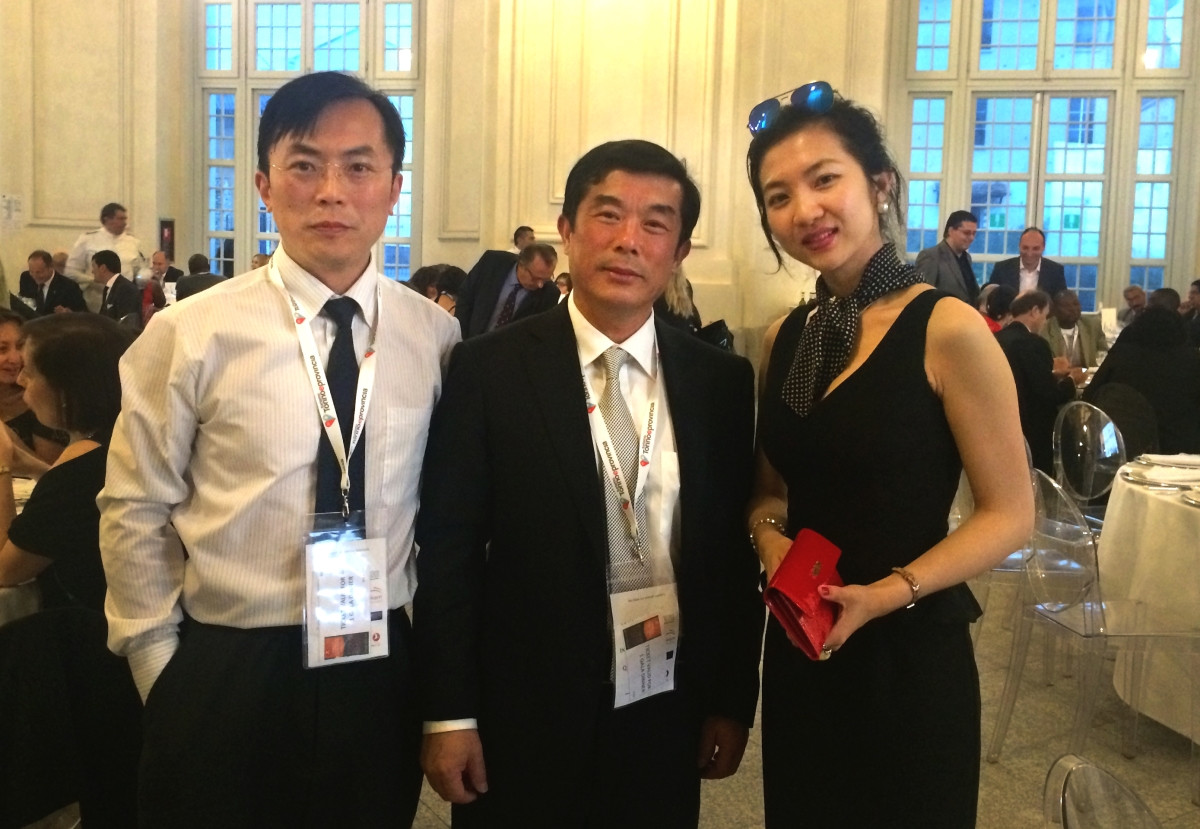
SMEs and the G20, China 2016
The excellent work of the Turkish B20 and its task forces demonstrated a strong commitment to issues affecting SMES and entrepreneurs and the potential for these smaller enterprises to contribute to the global jobs crisis. eNotus has a particular interest in this issue as it has undertaken research into how SMEs relate to their larger cousins – global enterprises that dominate the supply and value chains of international business. This study has looked at the impact in both developing and developed nations. With the move of the G20 Presidency from Turkey to China, eNotus has been establishing many linkages in China. One of the most important of these is the China Council for the Promotion of International Trade CCPIT and meetings and discussions with officials including the Vice Chairman Yu Ping have recently taken place in Paris during the OECD week. Dr Andy Song on the left is seen here in Turin with CCPIT officials from the Hangzhou Office.

During the past five years eNotus has been active in initiatives for SMEs and has been in close consultation with the OECD Centre for SMEs and Entrepreneurship. Following the G20 in Brisbane, Australia Reymond Voutier, Andrew Lauter, and Dr Andy Song have been members of the B20 SME Task Force. eNotus has a strong interest in the ways that SMEs can effectively connect with major global business enterprises and is currently conducting research on this subject.
Knowledge and the entrepreneur
The creation of new business enterprises and the response to business opportunities has always been the domain of entrepreneurs. As the knowledge based economy and e-commerce continue to grow across every sector new platforms providing easier entry into global business have become available and within the reach of small enterprises. The small and medium business sector and the entrepreneurs in developing nations are challenged as never before but are demonstrating creativity and tenacity to participate in these new opportunities.
Despite the connectivity provided by the Internet and rapid development of mobile communications infrastructure developing economies still face a more basic problem the lack of reliable of micro economic and business information and in many cases even electricity.
Information provides the essential underpinning for any knowledge based economic activity such as developing basic, intermediate and advanced industries. The total lack of industry information in some developing nations prevents entrepreneurs and small business from starting and growing enterprises.
eNotus has been involved in developing global scale solutions that provide a structure for industry, corporate and product information that can become the foundation knowledge for an emerging economy and its entrepreneurs.
The opportunity provided by the digital engine of the new economy can increase the number of SMEs whose products reach global markets creating new vigor or it can pass nations by making the digital divide a bleak economic reality.
